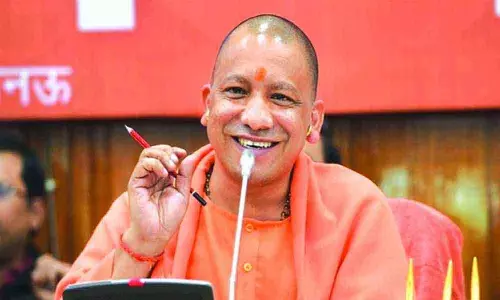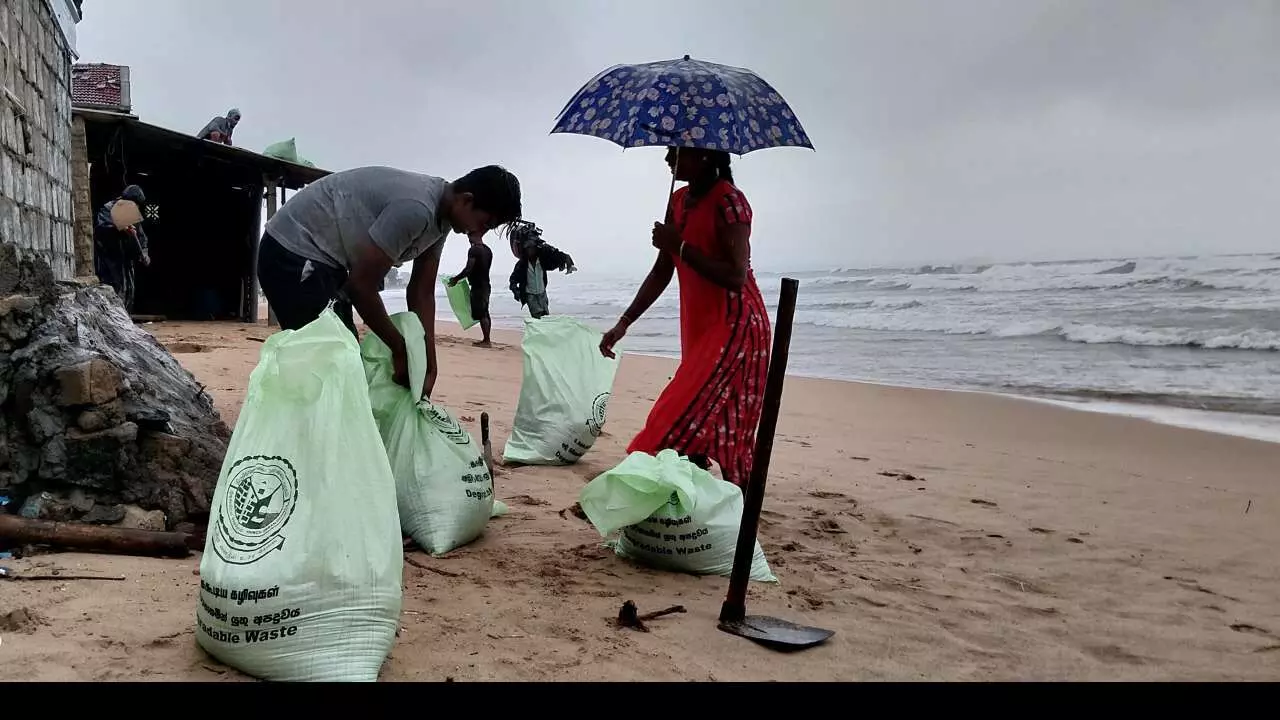
Hoping for Burevi to blow over
text_fieldsRepresentational image
Kerala is bracing itself with utmost vigilance to survive cyclonic storm Burevi that formed over Bay of Bengal and hit the Jafna region of Sri Lanka. The latest information from meteorological experts is that as the winds go beyond the Western Ghats, it may transform into severe or deep depression which gives some comfort. At the same time, the forecast is that the trajectory of Burevi will be, contrary to what was expected earlier, more northerly and will enter Kerala through the Ponmudi region and hit Arabian Sea along the coast of Varkala; this makes it more imperative to have further alertness and preparation. Given the caution by experts that the cyclone may hit the hills of Western Ghats and thus change its course and intensity, the government and the people need to be vigil with extreme preparedness until the risky situation is totally off, especially when the memory of the damage caused by Ockhi is still haunting people.
Government of Kerala has taken precautions to minimise the damage from disasters. Red alert has been declared in five districts and 48 villages have been put on high alert. In the high range and coastal areas, relief camps have been set up and resident populations evacuated. On the presumption that thunder and heavy downpour are likely to accompany winds, the Revenue Department has also taken rescue measures. The chief minister has convened a meeting of top officials including army, air force and naval officials and ensured that the machinery to face any emergency is in place. The National Disaster Response Force has also been prepared for rescue efforts. Kerala has the advantage of having handled two floods. It is also consoling that most people are now generally aware of how to be ready with emergency kits and short notice measures for houses.
What is now mainly needed is to shed the slack attitude to such disasters. Let us make deep prayers for no mishaps to occur. At the same time every one is bound to take utmost precautions to avoid loss and damage to lives when calamities happen. There is a common tendency to ridicule such safety measures if the predicted disasters do not occur following the natural phenomena. People with such response, which is extremely objectionable and denigrates vigilant actions, in fact are guilty of propagators buying future disasters. The need now is to create a social atmosphere where people take comfort if the feared disasters do not hit and turn proud to have complied with the precautionary directions. And Kerala has also become a land where this healthy attitude should rule, as dictated by natural calamities that happen repeatedly. For this very reason, every directive issued by the government needs to be complied with, including avoidance of night time travel and long journeys. With the possibility of high tide in dams and rivers due to intense downpour, the adjacent areas also have to adopt extra caution.
There is no use hiding the fact any more that Kerala has become one of the geographical patches really affected by climate change whose signs are visible in all seasons. This is a belt which feels the impact of the El Nino phenomenon. Burevi is the second cyclonic storm forming in the Bay of Bengal. The cause of the last two floods of Kerala also can be traced back to climate change. If heavy downpour happens in the state and can cause water-logging in 75 per cent of the land here, the hilly region is vulnerable to land slide and soil erosion. People who live in so fragile a location, should take the climate change not as an international problem, but as something directly impinging on their lives. Therefore, defensive action against nature's fury will be incomplete without Kerala transforming itself into a land of popular defence against global warming. That calls for government, voluntary organisations and social and community collectives alike to make ecological campaigns which can inspire the entire world in a manner reminiscent of the state's literacy drives in the past. Burevi is here to remind us how critical the Western Ghat is for our survival. But the tragedy is that the vigilance to protect it like with extreme diligence still eludes us - even after natural calamities.
























